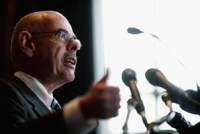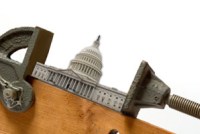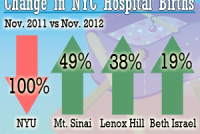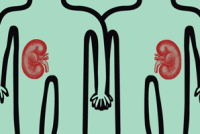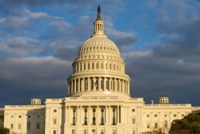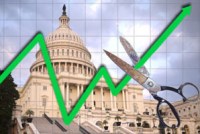Latest KFF Health News Stories
Hispanic Outreach Group Slow To Enroll Uninsured In Miami-Dade
A Washington-based group won a $646,000 grant to sign up Miami-Dade Hispanics for Obamacare, but its lack of local ties and a slow start has hindered its success.
Rep. Waxman, Passionate Advocate For Medicaid And Public Health Issues, Announces His Retirement
Former Energy and Commerce Committee chairman, known for his aggressive investigations, has been one of his party’s central figures in health care.
In Wonky Version Of American Idol, Georgetown Researchers Vie For Grants Before Local Donors
To become a judge, individuals donate at least $1,000 and then hear presentations about a handful of proposals before voting on a winner.
South Floridians’ Biggest Question About Marketplace Plans: Will They Be Affordable?
Consumers of different ages, health and income levels make different calculations about the costs and benefits of buying health coverage.
Health Law Boosts Status Of Alternative Medicine — At Least On Paper
The Affordable Care Act says that insurance companies “shall not discriminate” against any state-licensed health provider, which could lead to better coverage of chiropractic, homeopathic and naturopathic care. Alternative medicine is also mentioned in parts of the law on wellness, prevention and research.
Health Care Cuts From Vaccinations To Research
Sequestration’s cuts will likely affect how low-income Americans get maternal care, vaccinate their children and get treatment for mental illness, even if the cuts largely spare Medicare and Medicaid.
Medical Research, FDA And Mental Health Programs Face Budget Bite
Federal funding for Medicaid is untouched but doctors, hospitals and other Medicare providers will see a 2 percent reduction.
Pressure Rising To Avoid Federal Spending Cuts That Will Impact Health Programs
Although Medicare and Medicaid will be largely unscathed in the March 1 sequestration, other health-related efforts including medical research, mental health treatments and drug approvals face reductions.
Walmart Health Screening Stations Touted As Part Of ‘Self-Service Revolution’
The kiosks are part of a technology boom targeted at consumers seeking instant health data and cheaper, more convenient care.
Post-Sandy, NYU Langone Has Reopened, But Can It Regain Market Share?
Some 500 NYU doctors found refuge at other hospitals while NYU was closed following Hurricane Sandy. Now, the question looms whether all of the patients and doctors will return.
Kidney Donation Over Age 70? Desperate Patients Saying, ‘Yes, Please’
While most of the nation’s kidney transplant centers don’t have an upper age limit for recipients, more than three-quarters don’t accept the organs from people older than 70. Some doctors and patients are pushing to change that.
Counting Health Care Changes In The ‘Fiscal Cliff’ Deal
KHN’s Mary Agnes Carey and Politico Pro’s Jennifer Haberkorn detail the deal struck between President Obama and Congress to avert the so-called “fiscal cliff” and what the compromise means for hospitals and doctors who serve Medicare patients.
Automatic Budget Cuts Will Reduce Medicare Payments To Doctors, Providers By $11 Billion
The Obama administration released a report Friday afternoon detailing the automatic cuts that would begin in January as part of deal to raise the debt ceiling made last summer by the administration and Congress, staff writer Mary Agnes Carey reports.
The Great Fluoride Debate In Portland
Portland, Ore., is the largest American city that doesn’t add fluoride to its drinking water. Activists have been vocal, for and against a proposal to change that. The science shows that fears of side effects from small amounts of fluoride to protect teeth are unfounded.
When Religious Rules And Women’s Health Collide
This story comes from our partner ‘s Shots blog. When you go to the hospital these days, chances are good that it will be affiliated with a religious organization. And while that may might just mean the chaplain will be of a specific denomination or some foods will be off limits, there may also be […]
Testy Santorum, Romney Tussle Over Mass. Health Reform
In the last scheduled Republican debate, candidates Rick Santorum, Mitt Romney, Newt Gingrich and Ron Paul attacked the Obama administration on its birth control stance. Santorum dovetailed the issue into an attack of the 2006 Massachusetts health reform law, which then-Gov. Romney endorsed. Here is a transcript of the health care portions of the debate:
Health Programs Facing Cutbacks After Super Committee’s Failure
It’s a mixed verdict, however. Medicaid will be spared, and the Medicare hit will be limited to providers. But other programs, from disease prevention to public health surveillance, face big automatic cuts in 2013.
Prevention: The Answer To Curbing Chronically High Health Care Costs (Guest Opinion)
Kenneth Thorpe and Jonathan Lever write that Congress should be working to reduce health care costs by reducing the rates of the chronic diseases. Their message: It takes investment in the ounce of prevention to realize the pound of cure.
Under Health Law, Colonoscopies Are Free – But It Doesn’t Always Work That Way
The billing can get complicated if doctors find a polyp during a screening: Some insurers
Chopping Block Politics Threatens Biomedical Jobs
For most of the past decade, Democrats and Republicans in Congress have competed over who could pour more money into the National Institutes of Health, the largest funder of biomedical research in the world. But the party is over.



